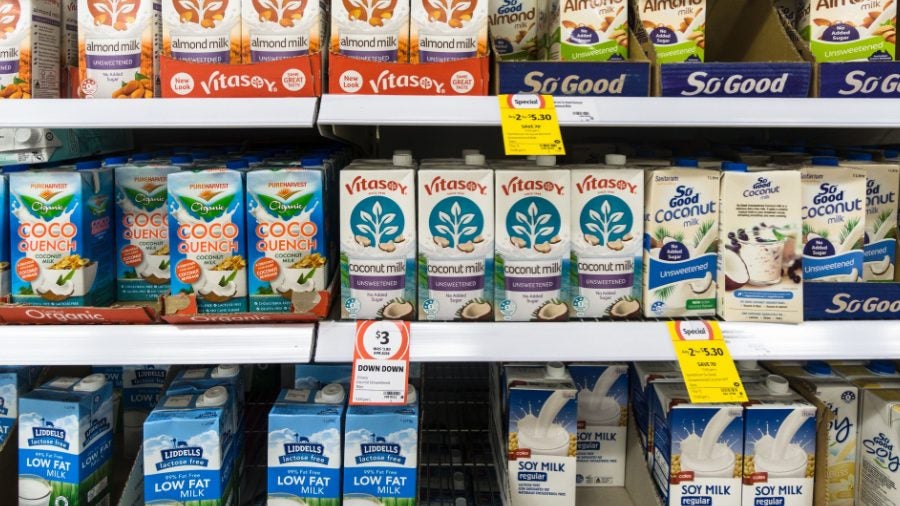
Australia’s two largest supermarket groups, Woolworths and Coles, have defended their pricing strategies after it was announced the country’s parliament is to hold an inquiry into claims of price-gouging.
Coles, Australia’s number two food retailer, said its rate of inflation has been “progressively moderating, particularly in key staple areas”. Woolworths, the biggest grocer in the country, said it “will continue to focus on delivering savings to our customers”.

Discover B2B Marketing That Performs
Combine business intelligence and editorial excellence to reach engaged professionals across 36 leading media platforms.
It was reported yesterday (4 December) that an investigation, to be conducted by representatives of the Senate, is to examine the role of the retailers during an inflationary period marked by fast-rising food costs.
Australia’s Greens party, which is to lead the inquiry, said it will “scrutinise the impact of market concentration on food prices and the pattern of pricing strategies employed by the supermarket duopoly”.
The review – which has gained cross-party support – will also assess the rise in essential item prices, the validity of discounts offered and “the inflation of profits during economic hardship”.
Greens economic justice spokesperson Senator Nick McKim said: “Coles and Woolworths are making billions in profits by price-gouging in a cost-of-living crisis.

US Tariffs are shifting - will you react or anticipate?
Don’t let policy changes catch you off guard. Stay proactive with real-time data and expert analysis.
By GlobalData“For too long the big supermarkets have had too much market power. This allows them to dictate prices and terms that are hitting people hard. It’s time to smash the duopoly.”
Woolworths and Coles have rejected the profiteering accusation.
A Woolworths spokesperson said: “We know Australians are feeling the strain of cost of living and we are working to deliver relief in their weekly grocery shop.
“As we start to see the rate of inflation ease, we will continue to focus on delivering savings to our customers.
“We are committed to offering our customers value while working with our suppliers to sensitively manage economy-wide inflationary pressures.”
A Coles spokesperson added: “Having a profitable business means Coles can continue to serve Australians, invest in our stores, employ the 120,000 team members we employ, pay taxes in Australia, pay dividends to our hundreds of thousands of mum and dad shareholders and ensure long-term sustainable relationships with our suppliers.
“It also puts us in a position to invest in value like Great Value Hands Down, thousands of weekly specials, our Flybuys programme for our customers to save and have confidence they can buy good food in our supermarkets.
“Coles is also not immune to the increased cost of doing business – construction costs, energy prices, the cost of logistics and packaging have all risen. Our suppliers are also challenged with many of the same increases and, rightly so, we have experienced a greater volume of supplier price increase requests which we have to balance.”
The Greens initiative is one of a number of government inquiries touching on the topics of cost of living and pricing in Australia.
Under its terms of reference, the inquiry will look at the price-setting practices and market power of major supermarkets. It will study the effect of market concentration on the price of food and groceries and the patterns of price-setting by the two major supermarket chains.
The probe will also look at rising supermarket profits, the increase in the prices of essential items and the prevalence of “opportunistic pricing, price mark-ups and discounts that aren’t discounts”.
The supermarkets will also face scrutiny on the contribution of own-brand products to their market position, the use of technology and automation to “extract cost-savings” from consumers and employees and any potential improvements that could be made to the regulatory framework to deliver lower prices for food and other groceries.
It will also look at frameworks to protect suppliers when interacting with the major retailers.
Between them, Woolworths and Coles control about two-thirds of the Australian grocery market, while the German discounter Aldi has a share of just over 10%.
In October, it was announced food price rises had eased in Australia in the third quarter. They increased by 0.6% during the period, marking the softest quarterly rise since September 2021.
But in the 12 months to September, food and non-alcoholic beverage prices rose 4.8%, up from the rise of 4.4% in August.





